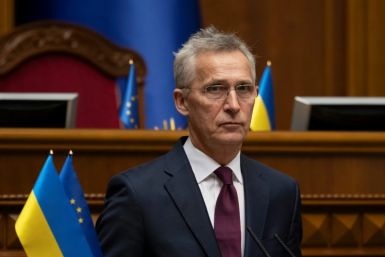IAEA's Approval Of Japan's Fukushima Water Release Sparks Criticism

KEY POINTS
- IAEA approved Japan's proposal to release treated radioactive water from Fukushima into the Pacific Ocean
- United Nations' nuclear watchdog stated the plan meets international safety standards
- Controversy arises as critics question the decision's potential consequences, despite IAEA reassurances
Despite receiving approval from the International Atomic Energy Agency (IAEA), Japan's proposal to release treated radioactive water from the Fukushima nuclear plant into the Pacific Ocean remains a highly contentious issue, fueling ongoing controversy.
In its report, the United Nations' nuclear watchdog affirmed Tuesday that the plan to gradually release over 1.25 million tons of water from the Fukushima nuclear plant is in line with international safety standards. The IAEA stated the proposed discharge would have minimal radiological consequences on both the environment and human beings. The Japanese media also echoed this position, while covering the IAEA report.
The issue has generated polarized public opinion, with supporters of the government's decision asserting its appropriateness, while critics contend the authorities have made a decision with unpredictable ramifications.
Later, the IAEA clarified their report neither constituted a recommendation nor an endorsement of Japan's choice to release the treated water.
Despite the IAEA's efforts to reassure the local public about the safety of the water release, activists expressed their deep disappointment with the agency's decision.
"In general, we are very disappointed by the decision," said Hideyuki Ban, a co-director of the Tokyo-based Citizens' Nuclear Information Centre, according to South China Morning Post. "The government promised that the water would not be released until the plan received the acceptance of the public, and that has clearly not happened."
Critics contend there was a lack of independent testing conducted on the water and that the public had to rely solely on the assurances of the IAEA, the Japanese government, and Tokyo Electric Power Co (Tepco), the plant's operator, regarding the safety of the discharged water.
Since the devastating events of March 2011, when three of the Fukushima nuclear plant's six reactors experienced meltdowns following a magnitude-9.0 earthquake and subsequent tsunami, water has been accumulating at the site. The reactor vessels require continuous spraying of water to maintain their cool temperatures. Additionally, ground waste is seeping into the underground areas of the facility, resulting in contamination with 63 different nuclides, including strontium, ruthenium, and iodine, at high levels.
For a significant period, Japanese fishermen have staunchly opposed the plan, asserting the filtration process is incapable of eliminating tritium from the water. They argue that an apprehensive public would be unwilling to consume seafood caught in the affected areas.
Tetsu Nozaki, the chairman of the Fukushima Prefectural Federation of Fisheries Co-operative Associations, countered the Japanese government's claims, stating that they were misrepresenting the local sentiment. According to Nozaki, the opposition to the plan among the local population remains robust and steadfast.
"We fishery operators are left with no choice but to react emotionally and harden our attitude," he told IAEA chief Rafael Grossi in a meeting in Iwaki, Fukushima, on Wednesday. "I beg you to realise ... that this project of the release of ALPS-processed water is moving ahead in the face of opposition."
Critics argue that Tokyo Electric Power Co (Tepco)'s own data suggests that the Advanced Liquid Processing System (ALPS), implemented at the Fukushima plant to ensure that nuclide levels are below internationally accepted standards prior to discharge, is not functioning effectively.
"Tepco released data in early June that showed more than 70% of the water it plans to release violates legal standards, and this is after it has been treated with the ALPS system," Ban said.
In response to the concerns raised, Tepco stated its intention to subject the water to the ALPS system repeatedly until the radionuclide levels conform to the required standards.
"I'm not sure that I believe them on this because even if they say they will put the contaminated water through several times, there are no guarantees that it will be effective," Ban told This Week in Asia, South China Morning Post reported.
"Also, the IAEA fails to include any real assessment of the environmental impact of the release over the next 30 or 40 years. They say the amount released each year is safe, but that is not the total amount that is going to be discharged."
© Copyright IBTimes 2024. All rights reserved.











